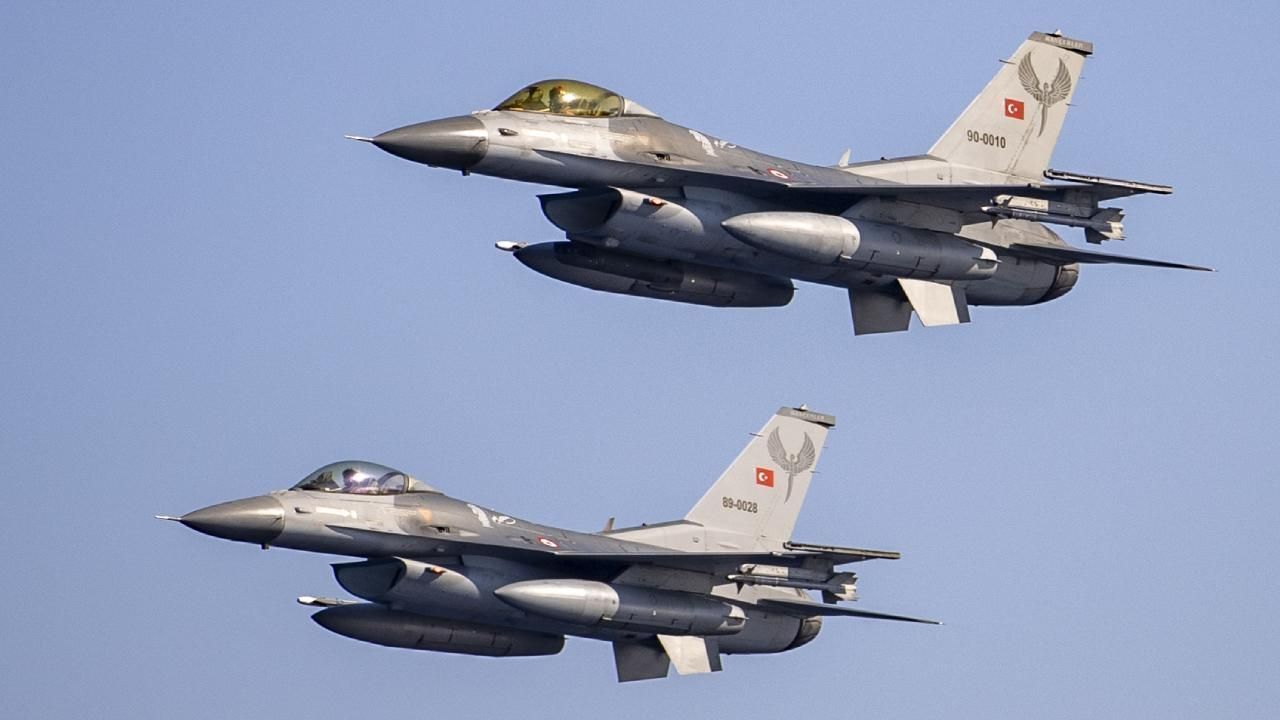Turkish, Romanian F-16s conduct training for NATO mission
Turkish and Romanian F-16s conduct interception drills as part of NATO's air policing mission to safeguard the alliance's airspace along the eastern flank

Turkish and Romanian F-16 fighter jets engaged in interception training on Thursday as part of NATO's enhanced air policing mission.
"As part of NATO Enhanced Air Policing Block-64 mission, a press day was held at Romania's Fetesti Borcea Air Base. Approximately 50 press members attended the event, capturing air-to-air shots," the Turkish Defense Ministry reported.
In December, four Turkish F-16 fighter jets arrived in Romania to take part in the mission until the end of March. These jets joined their Romanian counterparts in conducting sorties to protect NATO airspace on the eastern flank.
In a training exercise at Fetesti Air Base, Turkish F-16s simulated the full response to an air defense scramble, from crew scramble to take off.
Romanian Defense Ministry's Captain Cornel Pavel stated in a NATO release, "Since 2014, Romania has hosted NATO Enhanced Air Policing detachments from eight Allies and, now, Türkiye at its air bases near the Black Sea Coast. This has made a significant contribution to NATO's collective efforts to demonstrate its commitment to collective deterrence and defense, showcasing the strong cohesion among Allies."
Air policing is a peacetime operation aimed at safeguarding the alliance's airspace. It involves the continuous presence of fighter aircraft and crews, ready to swiftly respond to potential airspace violations, according to NATO.
NATO added, "As part of the comprehensive set of assurance measures implemented after Russia's illegal annexation of Crimea in 2014, allies are deploying additional assets to bolster air policing along NATO's eastern borders.
Source: Newsroom










